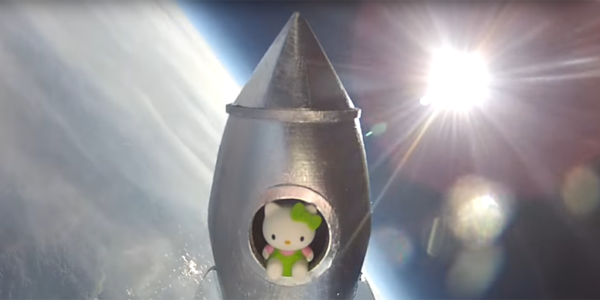Ready to expand your horizons? STEM clubs in schools are a way to try science and engineering activities like drone photography, 3D printing or learning to code. They look great on your CV too. Find out more…
What is STEM?
STEM stands for Science, Technology, Engineering and Maths.
There are more careers associated with STEM than ever before, touching every part of our lives from smartphones to breathable sportswear fabric, online shopping and hair dye. There is also an engineering skills shortage in the UK. So if you’re still at school, it’s the perfect time to try out a STEM club and see if you like what it’s all about. If it turns out playing with new technology is your kind of fun, you could have a bright (and well-paid) science, digital or engineering future ahead of you!
What are STEM clubs?
STEM clubs in school take place outside of lessons (often after school). They help you explore all kinds of areas of science. They’re not pushing you to achieve a big goal like passing your exams, though. You also get more say in what you get to explore than you do in lessons.
STEM club projects can include:
- Robotics
- Stargazing
- Learning to code
- Crystal growing
- Film SFX (special effects)
- 3D printing and making 3D designs
- Formula 1 aerodynamics
- … and so much more.
These science/engineering projects and other STEM activities can often be shaped by suggestions from you and other club members, as well as by teachers or club leaders, so that the club works for everyone.
STEM club project idea: Why not send Hello Kitty into space like 13-year-old Lauren Rojas did for her science project?
After school STEM clubs give you a chance to get away from textbooks and explore science in action. They also focus on good times, not just learning. Since STEM clubs happen in your free time, so it’s important that they’re fun for you to do.
Why join a STEM club?
Build your Young Professional skills for life including:
- Communication skills
- Problem-solving skills
- Self-belief and confidence
- Teamwork skills
- Self-management & organisation skills
Brighten your future career prospects:
- Put the STEM club on your CV to show you are keen to learn new things
- Enter competitions with the STEM club – your amazing project could go viral!
- Network and meet with people or organisations who could help you out later in life
- Planning to go to uni or college? STEM clubs could make your application stand out from the rest
- Planning to look for a job but have no work experience? STEM clubs are great on your first CV when you don’t have work experience yet.
Science, engineering and digital jobs are typically well-paid. There’s a lot of demand for people with your skills. If you’re keen to learn and soak up new things they’re going to want you even more once you get out of school.
Technology is the future. You can be a part of that. Allow science in your life, and don’t be afraid of it like those cavepeople from the distant past who freaked out when they saw fire for the first time.
Organisations supporting STEM clubs in schools
Find out if your school has a STEM club. If not, why not speak to your teacher about setting one up?
These organisations are all free to join. They have really helpful resources forteachers or club leaders without engineering backgrounds.
Take a look – then pass them onto your teacher:
STEM Clubs
(co-ordinated by STEMNET)
These fine folk offer guides to getting started, activity lists, a special zone for teachers and a whole lot more. Have a browse, and let your teacher know about it if they don’t already.
Young Engineers
Young Engineers is a leading membership network for UK school students aged 7-19 who are interested in engineering and science. Membership helps you and your school in all kinds of ways including STEM club support, challenges and events. Oh, and they have a mentoring programme, too.
Imagineering
There are over 100 Imagineering clubs across the UK. They’re aimed at 8-16 year olds so what they do could be great for your little sister or brother too. Imagineering clubs are really hands-on (meaning you get to use your hands a lot) because they’re all about making working engineering models from kits. Yes, even hydraulic robot arms…
Young Engineers and Science Clubs Scotland
If you’re based in Scotland, YESC is a major source of inspiration and resources for young scientists and engineers. Their network has more than 1,200 schools across Scotland. They can help with science clubs in both primary and secondary schools, with five easy steps to starting a science club.
Engineering careers information
See all articles related to energy water and sustainability careers, engineering careers, STEM careers…












